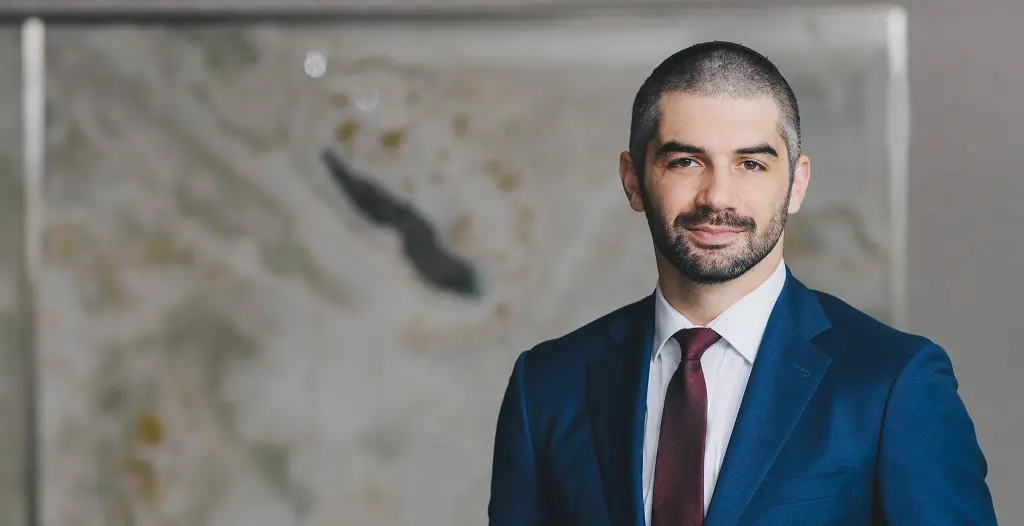Bar Exam Breach: Law Society of Ontario Moves Ahead With Claim While Affected Candidates Are Left on Outside Looking In
On May 25, 2022, following months of investigation, the Law Society of Ontario (“LSO”) announced that it had commenced an action against Aamer Chaudhry and NCA Exam Guru (“the Defendants”) for their alleged role in the breach and distribution of confidential exam materials to licensing candidates. The Statement of Claim published online as part of the LSO’s announcement seeks general damages and injunctive relief requiring the defendants to return and destroy any confidential material in their possession. At time of writing, the Defendants have not filed a Statement of Defence. They did put out a public statement, discussed below, and filed a Demand for Particulars.
Background
The LSO is the gatekeeper to anyone wishing to become a lawyer in Ontario. It regulates and licenses all lawyers and paralegals in the province. The most common way to become a licensed lawyer in Ontario is to attend an Ontario law school, take the bar exam a few months after graduating, article for 10 months at a law firm, and then attend the call to the bar ceremony where you sit in a hot, crowded room with 500 other candidates, waiting for your name to be called so you can briefly walk across the stage and shake a few hands.
There are other paths to becoming a lawyer in Ontario. You could attend a non-Ontario law school,1 clerk at one of the courts instead of articling, or attend the Law Practice Program at Toronto Metropolitan University’s Lincoln Alexander School of Law. However, one constant among all candidates is the bar exam. To practise in Ontario, you must pass the bar exam, which consists of two day-long, multiple-choice tests – one test for barrister-related law (think litigation) and one for solicitor-related law (think transactional work).
Because the bar exam is universal to all candidates, there are a number of tutoring services which offer to assist candidates in their preparation for the exam. One of the more well-known tutoring services was offered by Mr. Chaudhry2 and his company, NCA Exam Guru. NCA Exam Guru is a professional tutoring service which, according to its website, helps candidates “convert their legal qualifications and take the NCA Exam in Canada,” while also offering aid in preparation for the barrister and solicitor exams administered by the LSO.
Because every candidate must pass the bar exam, the LSO prioritizes security and integrity. To write the licensing exams, all candidates must sign a Candidate Agreement – a contract between the candidate and the LSO prohibiting any form of dissemination, copying, or disclosure of exam content. Moreover, prior to COVID-19, when the bar exam was administered in person, there were rules regarding the types of pens or pencils you could bring to the exams and the size and opacity of the Ziploc bag in which you could bring your supplies and lunch. At the end of the exam, all of the open-book materials which you were given by the LSO and permitted to bring into the exams had to be left behind so that the LSO could destroy them.
Imagine the LSO’s shock and embarrassment when, in March 2022, it learned of evidence “strongly” indicating that candidates had somehow gotten access to the questions and answers for the November 2021 sitting of the bar exam.
Those candidates who wrote and passed the November sitting – and originally qualified to be licensed in Ontario – were notified by the LSO that “the Law Society is conducting an assessment of their examinations and that their eligibility to be called to the bar is being held in abeyance pending that assessment.”3
As a result of the alleged breach, the LSO abruptly rescheduled the March 2022 examination to April 2022, disrupting the anticipated test date of all candidates. The LSO also promised to investigate the source of the breach and take whatever actions necessary to hold the responsible parties accountable.4
In April, to give itself more time to investigate the breach and prevent further misconduct, the LSO also rescheduled the summer examination sessions from the anticipated June date until July 2022, and moved the examination from its previously online format (adopted in response to COVID-19) back to in person.
The last-minute changes prompted outcries from licensing candidates scheduled to write the summer examinations. In an open letter addressed to the LSO, students highlighted their “frustration and disappointment” as a result of the abrupt change:
“By changing these dates with such minimal notice, the LSO has disrupted the important plans made by countless future lawyers. This disruption not only impacts the individual lives of licensing candidates, but undermines the LSO’s role as an efficient, transparent and fair regulator that is sensitive to the needs of whom it regulates.”
The letter included the signatures of more than 500 Ontario law students and licensing candidates imploring the LSO to offer a seating of the exam according to the original schedule.
The Claim Against Aamer Chaudhry and NCA Exam Guru
The Statement of Claim alleges that Mr. Chaudhry and representatives of NCA Exam Guru improperly obtained and distributed answers to the November 2021 barrister examination to clientele enrolled in its course. The documents were allegedly disseminated through email, Skype, and WhatsApp messaging services. The Statement of Claim highlights that Mr. Chaudhry allegedly “encouraged clients to use the Cheating Documents [on the examination].” The Statement of Claim further alleges that the defendants “have engaged in similar conduct in relation to other LSO licensing examinations” but continues to investigate these claims. This may seem to suggest that there was improper use of exam content in other exam sittings.
The LSO is seeking damages for breach of confidence, conspiracy, inducing breach of contract and copyright infringement, as well as an order requiring Mr. Chaudhry and his associates to return all examination content. The LSO is also seeking disgorgement damages from all profits earned (directly or indirectly) from the alleged copyright infringement, as well as punitive and aggravated damages in the amount of $100,000. The claims of breach of confidence and conspiracy are discussed in more detail below.
Interestingly, the Statement of Claim pleads that the candidates themselves have experienced cost, inconvenience and stress, but stops short of making any claim on behalf of these candidates.5 It is unclear what role, if any, innocent licensing candidates who were affected by the Defendants’ alleged actions will play in the proceeding.
A. Breach of Confidence
The LSO alleges Mr. Chaudhry and his associates committed the tort of breach of confidence. Breach of confidence is a cause of action which offers legal redress for the misuse of information imparted in confidence, which is then subject to unauthorized use. A claim for breach of confidence requires the plaintiff to demonstrate that the confidee has misused information to the detriment of the confider.6 Notably, it is a unique cause of action that may give rise to remedies in law or equity.
In Lac Minerals Ltd. v. International Corona Resources Ltd. (“Lac Minerals”),7 the Supreme Court of Canada set out the elements of the tort of breach of confidence:
(1) the information must have the necessary quality of confidence about it;
(2) the information must have been imparted in circumstances importing an obligation of confidence; and
(3) there must have been an unauthorized use of that information to the detriment of the party communicating it.8
In this case, the LSO claims that the exam content in question has a “necessary quality of confidence about it” because questions from past exams or answers to exams are not provided to anyone and the Candidate Agreement provides that all exam content is confidential. The claim concedes that although it is unknown how the Defendants accessed the examination content, the Defendants were aware that the content was imparted in breach of confidence.
Finally, the use of the exam content was unauthorized and used in a manner to the detriment of the LSO. The Candidate Agreement explicitly prohibits any form of dissemination or copying of exam content and any misappropriation naturally detracts from the integrity of the LSO and the bar exam, harming the LSO and the legal profession as a whole.
B. Conspiracy
The LSO alleges that Mr. Chaudhry and his associates are liable for conspiracy. A claim for civil conspiracy can be established on two grounds:
- First, there may be a conspiracy to injure, where persons act in concert with the predominate purpose of causing injure to the plaintiff, and actual damage is suffered by the plaintiff as a result.
- Second, there may be a conspiracy of unlawful acts, requiring that persons, in concert, engage in unlawful conduct towards the plaintiff in a manner in which injury to the plaintiff is likely to and does result.9 To constitute unlawful conduct for the purposes of the second ground, the conduct must “wrong in law, whether actionable at private law or not.”10 The tort will not have occurred where only one of the persons is found to have engaged in unlawful conduct.11
In this case, the LSO relies on the second ground, namely that Mr. Chaudhry, NCA Exam Guru, and “other individuals” associated with NCA Exam Guru acted in concert to obtain exam content and distribute the content to its clientele. The claim further alleges that particular candidates joined this agreement by virtue of accepting and, in some cases, using the content. The unlawful means alleged include “obtaining, disseminating, and using the [exam content]” in violation of the LSO’s Candidate Agreement signed by all licensing candidates.
If the breach of confidence of claim fails, the conspiracy claim may succeed under an alternative wrongful act set out in the claim. For example, as the LSO is also claiming breach of copyright and inducing breach of contract, either of these claims may be a sufficiently “unlawful act” to ground the claim of conspiracy.
Mr. Chaudhry’s Response
In response to the allegations, Mr. Chaudhry released a statement denying the claims, stating: “the allegations made by the Law Society are not proven and we will vigorously defend [the claim] as appropriate through the courts.”
Our Litigation Group will continue to monitor the developments in this case and provide updates as they become available.1 Non-Canadian candidates have to go through the NCA process, which stands for the National Committee on Accreditation, which assesses the “legal education and professional experience of individuals who obtained their credentials outside of Canada or in a Canadian civil law program.”
2 Mr. Chaudhry is a former LSO licensing candidate, but not a licensed lawyer or paralegal.
3 “Licensing examinations cancelled to protect public interest and integrity of examination process,” March 5, 2022.
4 “Licensing examinations cancelled to protect public interest and integrity of examination process,” March 5, 2022.
5 In normal circumstances, a party cannot include claims on behalf of third parties in its claim and such claims are liable to be struck out as disclosing no reasonable cause of action: Fibracast Ltd. v. Waterspin S.r.l., 2021 ONSC 2147 (CanLII), at para 57.
6 Lac Minerals Ltd. v. International Corona Resources Ltd. [1989] 2 SCR 574 at 577 [Lac Minerals].
7 Lac Minerals.
8 Lac Minerals at 608.
9 Agribrands Purina Canada Inc. v. Kasamekas (2011), 106 OR (3d) 427 at 37 [Agribrands].
10 Agribrands.
11 Agribrands.


